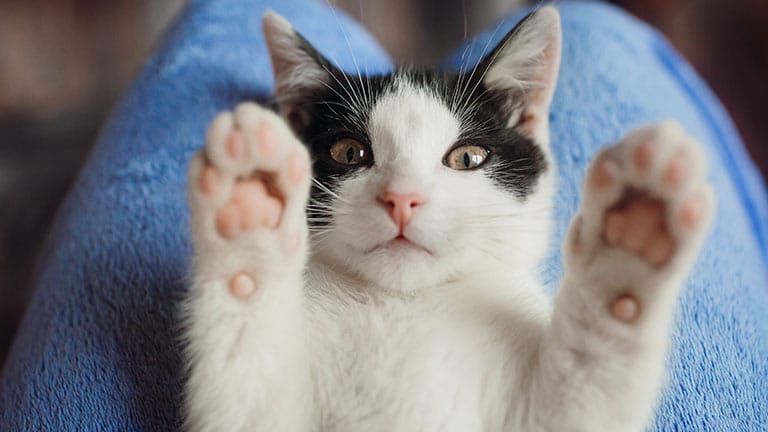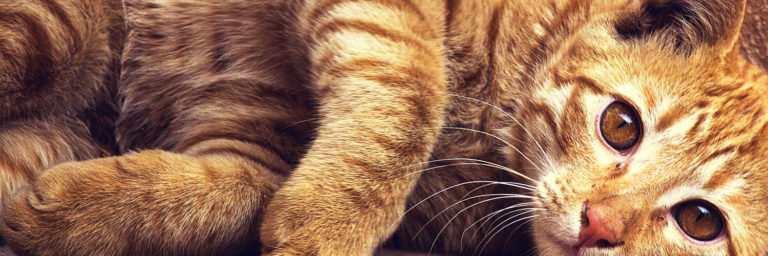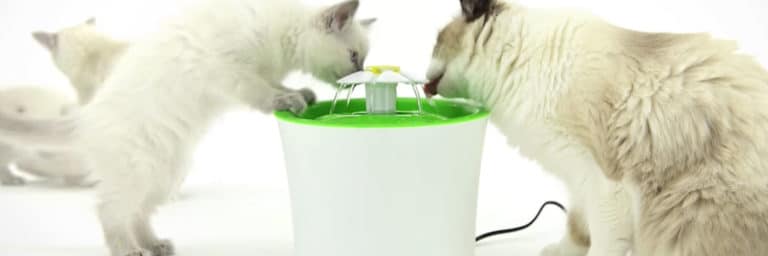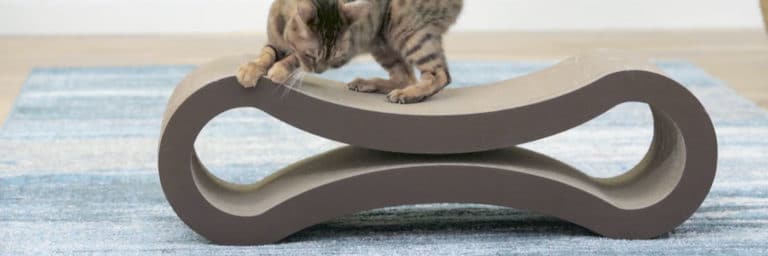Best Joint Supplements for Cats – 5 Remedies for Your Cat’s Arthritis
Contents of Article
- Choosing the Best Joint Supplements for Cats
- What is the Best Joint Supplement for Cats with Arthritis?
- Nutraceuticals Used in Joint Supplements
- Best Joint Supplements for Cats: Our Top 5 Recommendations
- Nutramax Cosequin Capsules Joint Health Cat Supplement
- Nutramax Cosequin Joint Health Soft Chews Cat Supplement
- Nutramax Dasuquin Joint Health Cat Supplement
- VetriScience GlycoFlex Stage III Ultimate Strength Joint Support Bite-Sized Cat Chews
- Zesty Paws Pure Salmon Oil Skin & Coat Support Dog & Cat Supplement
- Which joint supplements should you choose?
The best joint supplements for cats support joint resilience and may prevent cartilage loss, helping your cat to stay spry and comfortable throughout life.
In this article, you’ll learn about the types of joint supplements, how they work, and which are the best choice for your cat.
Choosing the Best Joint Supplements for Cats
We’ll go into more detail on the nutraceuticals used in joint supplements later, but here’s your main takeaway—no joint supplement shows consistent, substantial ability to control or reduce cartilage degeneration. No joint supplement is a magic bullet.
Although many people swear by dietary joint supplements for their cats, you shouldn’t rely on them to keep your cat’s joints healthy.
Instead, joint health management should involve a combination of therapies. A system of safe anti-inflammatories, joint supplements, and healthy weight maintenance will help your cat to continue jumping, stretching, grooming, and feeling sprightly.
What is the Best Joint Supplement for Cats with Arthritis?
- Nutramax Cosequin Capsules Joint Health Cat Supplement
- Nutramax Cosequin Joint Health Soft Chews Cat Supplement
- Nutramax Dasuquin Joint Health Cat Supplement
- VetriScience GlycoFlex Stage III Ultimate Strength Joint Support Bite-Sized Cat Chews
- Zesty Paws Pure Salmon Oil Skin & Coat Support Dog & Cat Supplement
Joint supplements come in two primary forms—capsules and treats.
Both capsules and treats are effective, so your choice is ultimately determined by your and your cat’s preferences.
Capsules are easy for some to administer. You can either force your cat to swallow the capsule at once or break it open and pour the powder into your cat’s food. The powder usually has a cat-friendly flavor.
If you prefer the fun and convenience of a tasty snack, consider a joint supplement treat. These have meaty flavors that most cats enjoy and make administration easy. Unlike a powder, these treats stand on their own and can’t be disguised by your cat’s favorite food. If your cat doesn’t like the taste or texture of a joint supplement treat, there’s no way of hiding it or forcing her to eat it.
Nutraceuticals Used in Joint Supplements
Here’s a summary of the nutraceuticals most commonly used in joint supplements.
Glucosamine
Glucosamine appears naturally in the body, where it increases the production of molecules that bind and store water in the cartilage, hydrating it and making it more cushiony.
Glucosamine is one of the precursors for glycosaminoglycans, the building blocks of cartilage. While this is sometimes used as an argument for glucosamine’s ability to restore cartilage, it’s unclear if glucosamine supplements have the same effect. Some studies on rats and rabbits have found that glucosamine may be able to stimulate cartilage growth. In vitro studies have shown that glucosamine can reduce inflammation.
While evidence of glucosamine’s potential as a joint supplement is unclear and contradictory, one thing remains consistent. It appears to be safe. Some have suggested that glucosamine supplementation could interfere with diabetes treatment due to the molecules’ structural similarity to glucose. Though this doesn’t appear to be an issue among diabetic human patients, there isn’t any research on the effects of glucosamine supplementation among diabetic cats.
A typical therapeutic dose starts at 500 mg glucosamine per 25 lbs of body weight.
Chondroitin
Chondroitin or sodium chondroitin sulfate is naturally present in cartilage, so it’s already within your cat’s body. Like glucosamine, chondroitin helps the cartilage retain water and contributes to the bounce and shock-absorbing properties of cartilage.
When used as a supplement, chondroitin may reduce joint pain while increasing mobility. Chondroitin inhibits the enzymes that destroy cartilage, slowing arthritis progression.
A typical therapeutic dose starts at 400 mg chondroitin per 25 lbs of body weight.
MSM
While less well-known than glucosamine and chondroitin, MSM is a chemical commonly seen on joint supplement labels. The acronym stands for methylsulfonylmethane and it’s an organosulfur compound that naturally appears in some plants.
Some have suggested that this sulfur supplement has an anti-inflammatory effect, but these effects aren’t well-understood. Studies on MSM’s potential as a treatment for arthritis have been promising but inconclusive, showing that it may help to reduce knee pain and increase mobility.
A typical therapeutic dose is approximately 250 mg per 10 lbs of body weight.
Green-Lipped Mussel (Perna canaliculus)
Lipid extracts from this shellfish may reduce symptoms of arthritis, though the research is inconclusive.
Green-lipped mussel extract isn’t a well-understood supplement and its mechanisms remain a mystery, but here’s what we know.
Green-lipped mussels are rich in omega-3 fatty acids, including EPA, DHA, and ETA. The latter is relatively rare in food products and, like EPA and DHA, has the potential to support the body’s natural anti-inflammatory response.
Additionally, green-lipped mussels contain glycosaminoglycans, a group of polysaccharides that includes chondroitin, one of the building blocks of cartilage and a common joint supplement.
Eggshell Membrane
Eggshell membrane contains glycosaminoglycans, which are fundamental components of cartilage. It’s also rich in collagen and hyaluronic acid, both of which can support joint health. While limited, the research is hopeful—in one randomized, placebo-controlled study, patients taking an eggshell membrane supplement were 26% more likely to report reduced pain and stiffness compared to the group taking a placebo.
A typical therapeutic dose is about 100 mg natural eggshell membrane per day.
Fish Oil
Fish oil is a rich source of omega-3 fatty acids, a group of fats with anti-inflammatory properties. Specifically, fish oil contains EPA (eicosapentaenoic acid) and DHA (docosahexaenoic acid). These fatty acids serve multiple purposes in the body, supporting brain development in kittens and promoting skin and coat health. Most importantly for joint health and cats with arthritis, they also reduce inflammation.
It appears that fish oil may also help to improve the efficacy of other anti-inflammatory drugs.
While many foods contain fish oil as a source of omega-3s, very few offer therapeutic levels. A little bit of fish oil in your cat’s food may control mild inflammation, but a cat with arthritis demands supplementation on top of what’s already in her food.
Remember that fish oil is, like any other fat, high in calories. A therapeutic dose of fish oil could add up to an additional 30 calories per day. Healthy weight management is just as—if not more—powerful than omega-3 supplement. Closely watch your cat’s food intake to balance the additional calories from fish oil.
A therapeutic dose of fish oil is about 400-700 mg combined EPA and DHA per day.
Best Joint Supplements for Cats: Our Top 5 Recommendations
The following supplements contain well-researched ingredients with known benefits for joint health. Most of them are frequently recommended by veterinarians and all have overwhelmingly positive customer reviews.
Nutramax Cosequin Capsules Joint Health Cat Supplement
Active Ingredients: Glucosamine, Chondroitin, Manganese
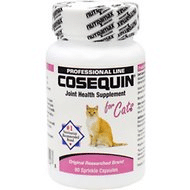
According to the company, Nutramax is the number one joint supplement brand recommended by veterinarians. Nutramax adds that they’re the only brand shown effective, safe, and bioavailable in published, controlled US studies. They note that their products are manufactured following standards “similar to those practiced in the pharmaceutical industry”.
Overall, Cosequin is a well-regarded brand with adherents in the veterinary community and throngs of believers. On Chewy, 96% of reviewers say they’d recommend these Cosequin joint supplement capsules. Reviewers share stories about their cats becoming more active, running, jumping, and playing more after a couple weeks on the supplement.
While some customers say the product didn’t work, most negative reviewers complain that their cat didn’t eat it at all, saying the powder tasted bad or that the capsules were only partially full.
The capsules contain a trademarked blend of at least 125 mg glucosamine hydrochloride, 100 mg sodium chondroitin sulfate, and 1 mg manganese, which is added to support glycosaminoglycan and mucopolysaccharide production. It also acts as an antioxidant.
The active ingredients adhere to Nutramax Laboratories’ proprietary specifications.
Pros
- A well-regarded product
- Many customers say the Cosequin capsules improved their cats’ mobility
- Contains well-researched nutraceuticals
Cons
- Contains artificial colors
Nutramax Cosequin Joint Health Soft Chews Cat Supplement
Active Ingredients: Glucosamine, Chondroitin, Omega-3s
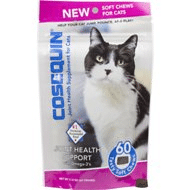
According to the company, Nutramax is the number one vet-recommended brand for joint health support. This statement is supported by a survey of small animal veterinarians that was conducted in February 2016.
These soft chews use a blend of glucosamine hydrochloride, sodium chondroitin sulfate, omega-3s, and fish oil. Each serving of two soft chews contains 125 mg glucosamine hydrochloride, 100 mg sodium chondroitin sulfate, 15 mg EPA, and 10 mg DHA.
The dose of glucosamine and chondroitin is equal to that offered by Cosequin’s popular powder capsules and is aligned with standard dosing recommendations. The omega-3 content, however, is insignificant and may not have any meaningful anti-inflammatory effect.
Compared to the brand’s Cosequin capsules, the soft chews are slightly less popular and more expensive. They’re a good choice for cats who enjoy treats and can’t tolerate the powdered form. Unlike the capsules, the treats are free of artificial colors.
Pros
- Made with a trusted formulation of well-regarded ingredients
- Contains added omega-3s
- Free of artificial colors
- A well-respected brand and product
Cons
- Some cats reject the taste and texture
- Expensive
Nutramax Dasuquin Joint Health Cat Supplement
Active Ingredients: Glucosamine, Sodium Chondroitin Sulfate, Avocado/Soybean Unsaponifiables
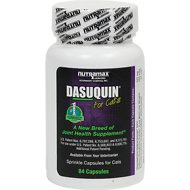
Nutramax calls Dasuquin “the most complete joint support supplement available”.
Each capsule contains 125 mg glucosamine hydrochloride, 100 mg sodium chondroitin sulfate, and 25 mg avocado/soybean unsaponifiables or ASU. All of these ingredients comply with Nutramax’s proprietary specifications.
According to the Arthritis Foundation, ASU is a natural vegetable extract made from soybean and avocado oil. This blend of oils can inhibit inflammatory chemicals while preventing the deterioration of the synovial cells that line the joints. ASU may also help to restore connective tissue.
The powder in each capsule has natural chicken and tuna flavors that appeal to the feline palate. Customer reviews describe the powder as both palatable and effective, though it doesn’t appear to be as popular as Cosequin. Some say their cats prefer the taste of Cosequin to Dasuquin.
Pros
- Contains ASU for additional benefits
- Made by a well-respected industry leader
- Contains well-researched ingredients
Cons
- Some cats don’t like the flavor
- Contains artificial color
VetriScience GlycoFlex Stage III Ultimate Strength Joint Support Bite-Sized Cat Chews
Active Ingredients: Glucosamine, MSM, Perna Canaliculus, DMG, Vitamin E, Ascorbic Acid, Manganese, Grape Seed Extract, L-Glutathione, Selenium
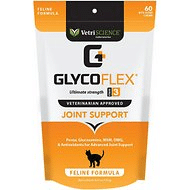
Of the products on this list, this supplement has the greatest variety of nutraceutical ingredients.
Each serving of two chews contains 300 mg green-lipped mussel, 250 mg glucosamine, 250 mg MSM, 50 mg DMG, 25 IU vitamin E, 12 mg ascorbic acid, 5 mg manganese, 2.5 mg grape seed extract, 1 mg L-glutathione, and 0.001 mg selenium.
Like all GlycoFLEX® products, the supplement uses an exclusive brand of green-lipped mussel that’s freeze-dried and includes the entire organism, leaving the amino acids, minerals, fatty acids, glycosaminoglycans, and other components intact.
In addition to green-lipped mussel, glucosamine, MSM, and manganese, the supplement contains a few nutraceuticals we haven’t encountered in other products on this list.
Ascorbic acid is a form of vitamin C, which may be able to reduce pain and inflammation in patients with arthritis. Ironically, other research has found that high doses of vitamin C may worsen osteoarthritis.
Vitamin E is an antioxidant, as is grape seed extract. In humans, grape seed extract may interact with NSAIDs, but it’s unclear how this nutraceutical might affect cats taking these anti-inflammatory drugs. While grape seeds and flesh are toxic to cats, it appears that the seeds and oil are safe.
The ingredient L-glutathione is a molecule made up of the amino acids L-cysteine, glycine, and L-glutamate. The molecule is naturally produced by the liver and is thought to have antioxidant effects when taken as a supplement, though its benefits aren’t well-understood.
Selenium is also added as an antioxidant. According to the Arthritis Foundation, some research suggests that selenium supplementation could help prevent rheumatoid arthritis, but there’s no evidence that selenium can ease already-present symptoms.
While most cats enjoy the taste of the chews and seem to respond well to the ingredients, some reviewers say their cats hated the taste or that the chews were too large to eat.
Pros
- Many reviewers say the chews were effective
- Rich in green-lipped mussel
Cons
- Contains several minimally-understood nutraceuticals that may not be safe or effective
- Chews may be too large or taste unpleasant
Zesty Paws Pure Salmon Oil Skin & Coat Support Dog & Cat Supplement
Active Ingredients: Salmon Oil (source of omega-3s)
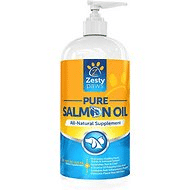
While not labeled as a joint supplement for cats, this salmon oil makes a good addition to your joint health program. It’s naturally rich in omega-3 fatty acids EPA and DHA, both of which have well-documented anti-inflammatory properties. Each teaspoon contains 480 mg EPA and 528 mg DHA.
The large pump bottle is an economical and convenient choice, allowing you to administer salmon oil without bursting and squeezing capsules or using a dropper. Instead, you can pump the oil directly into your cat’s bowl—one pump is one teaspoon—or squirt it into a measuring spoon for greater precision.
The pump is also this product’s greatest flaw—several reviewers say the pump leaked or didn’t work at all. Aside from these sticky, oozy situations, customers seem happy with this salmon oil. While comments about skin and coat health predominate the review section, those who use it for arthritis have primarily positive experiences. One said their cat’s audibly “cracking” joints no longer make a sound after 6 months using Zesty Paws salmon oil.
Pros
- Economically-priced
- Made from 100% wild-caught Alaskan salmon
- Easy to administer
- Most cats like the way it tastes
Cons
- Doesn’t help to improve cartilage structure
- The pump may leak or malfunction
Which joint supplements should you choose?
Fish oil, green-lipped mussel, and other sources of the omega-3 fatty acids EPA and DHA can help to reduce inflammation, while sources of glucosamine and chondroitin might help to maintain healthy cartilage. Other supplements may help to control joint degeneration, particularly when used in conjunction with other supplements.
The best joint supplements for cats include a combination of glucosamine, chondroitin, and some variety of synergists, additional supplements, and flavor additives. They’re well-researched and, ideally, they’ve been tested and shown to be effective in controlled studies.
Choose a trusted product and watch for changes in your cat’s behavior. If you don’t see improvement after a couple of weeks, you might want to try a new supplement. A conversation with your vet may help you to identify which changes might help reduce your cat’s pain and increase her mobility.

